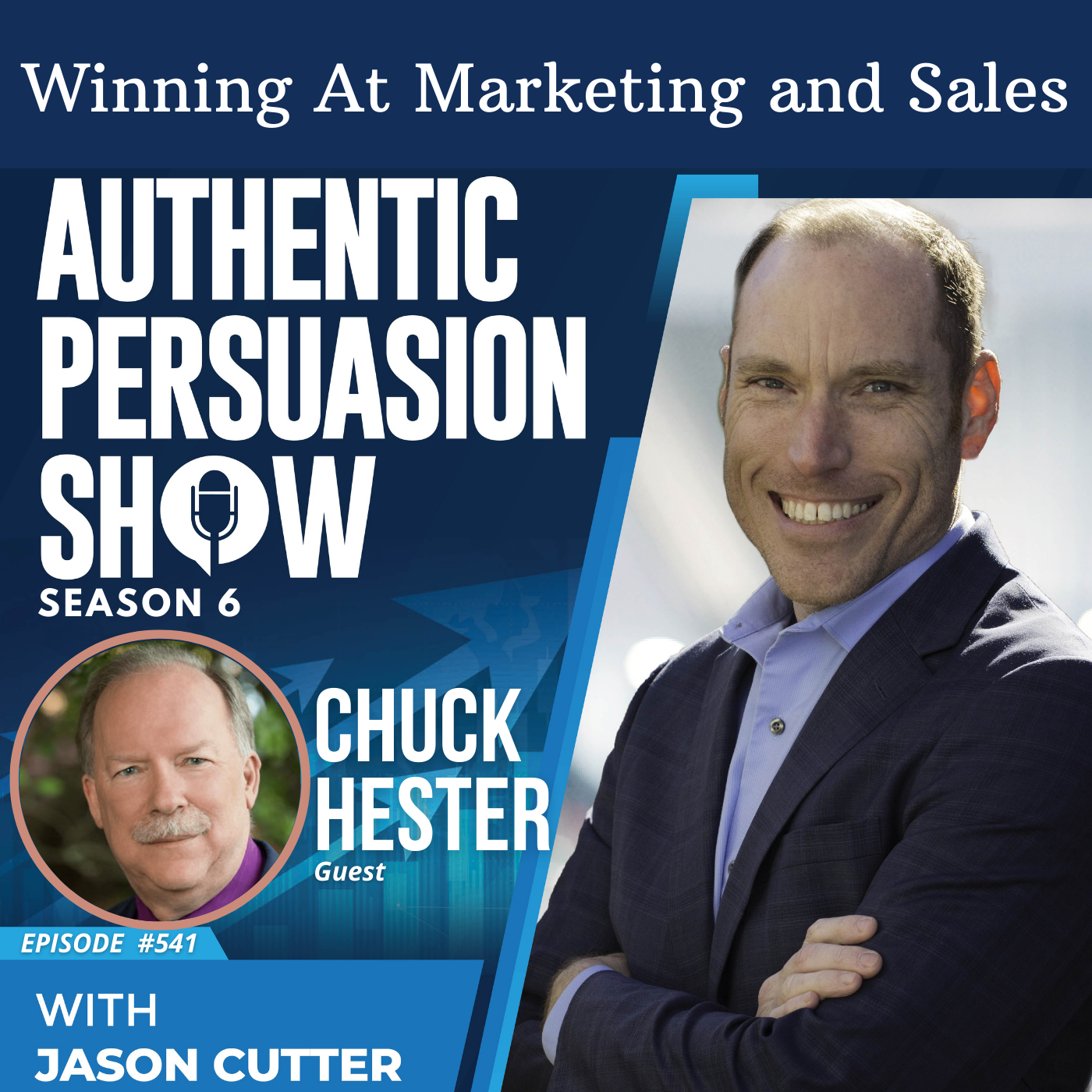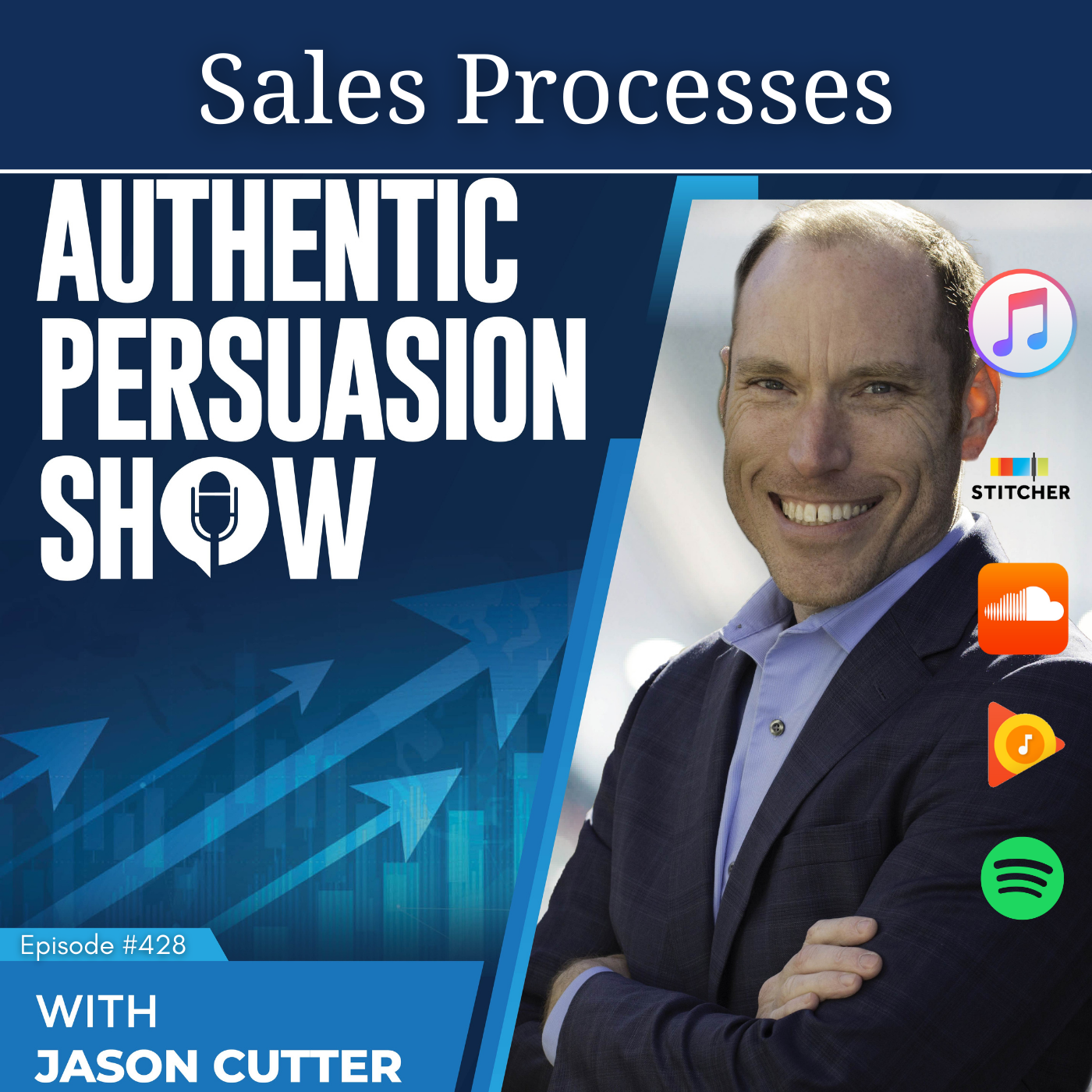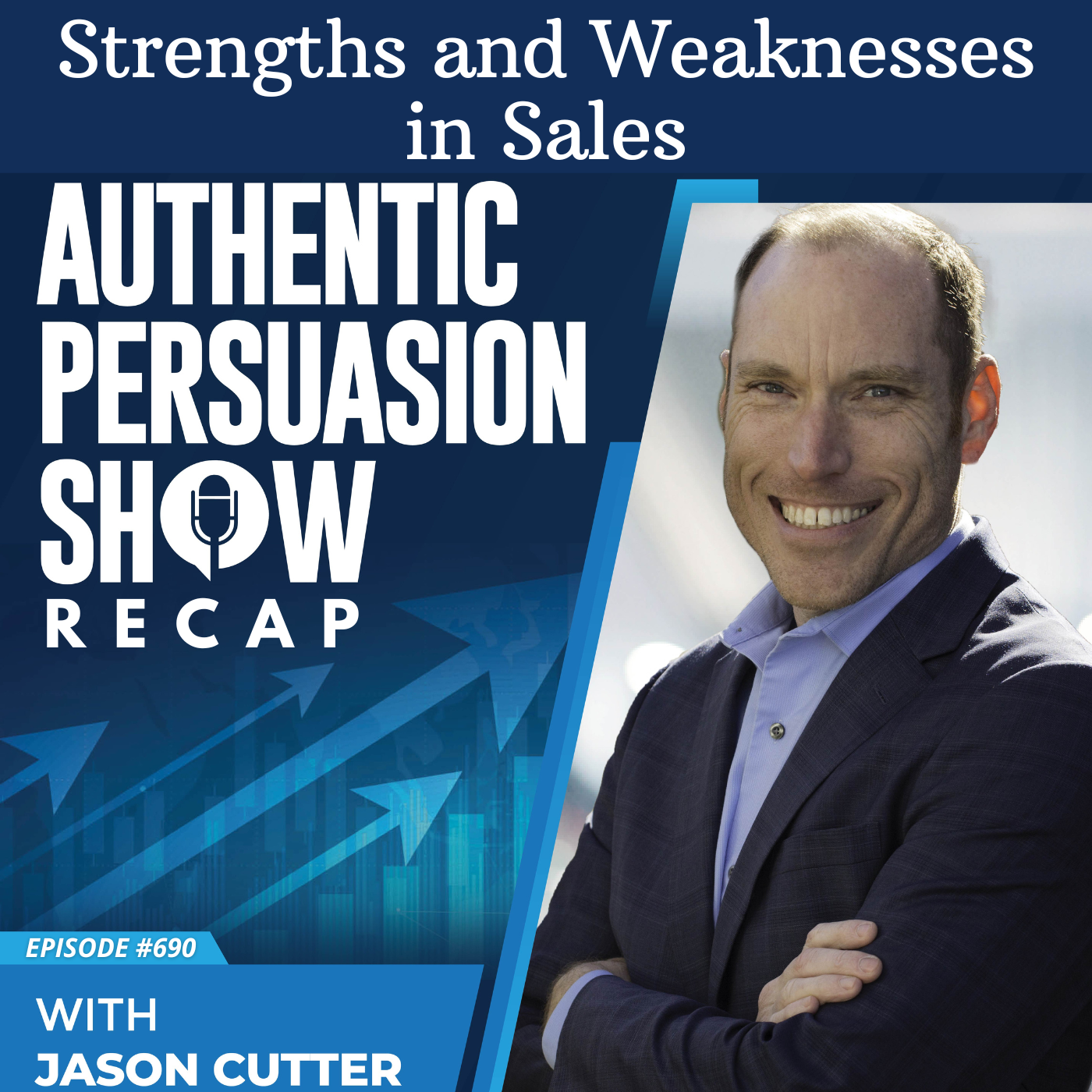Episode Transcript
Jason: This is part three of my conversation with Daryl Prail from Vanilla Soft. Please make sure to listen to part one and two. You're an aspiring CRO, you're a CEO of an organization, and you're struggling with the alignment between sales and marketing. This is the series for you from a revenue operation standpoint.
Here you go. Part three, I will see you afterwards.
Darryl: So now we have a whole ABM model going on. Invested in. Software. So we put it, we bought Terminus and then we bought salesforce. com. So we had a single source of record truth across the whole system and all the AEs are using salesforce. com before they just use Manila.
So lots of technology, lots of overhaul. The purpose of doing ABM was still my AEs are not now being outbound driven. Now there's. Five plus 40 accounts. You're chasing junior. That's called outbound. You're going to actually target the accounts. You're going to know your value. You're going to map them all out and away you go.
So getting them involved in creating those lists was huge to get buy in. So Long story short, we moved from an inbound to an outbound to do that. We went ABM to make ABM happen. We put in technology. We created supporting departments. We focus on training consistently on product and on selling. I actually brought in an outside sales trainer.
We put together a three month steroid based training on sales skills. So they're having one on ones with every rep every single week, as well as with teams. We now average a minimum of five hours a week. Just in training, which we were never doing before. And so that's where we're at. That's a long answer, Jason.
I apologize. But as you can see, I rolled that all out on day 30. And on day 30, I literally used the exact same way how it started. I called every single rep one on one and I spent 20 to 30 minutes with them again. And I said, okay, we talked a month ago. Here, we're fast forward a month. And I told them what I just told you.
Same thing at the same speed. Here's what I uncovered. Here's what I learned. Do you think that's right? Yes, Daryl, that's right. Great. This is what we're doing. Ding ding. And this is your new role. Several people got promoted to become AEs. A few people got reduced because of the structure and change.
And one of the feedback I got was, I'm so excited. I'm so thrilled. Like they were just jammed. They were just so pumped. They're like, we have a plan and it makes sense. And they were shocked. They were shocked at how much I shared with them and how in depth it was. Which that part surprised me that they were shocked because how else do you do it?
We all need to be bought in. That's my first 30 days. Now we're in the middle of actually ripping out all the cadences and the processes and the tools and cleaning all the data. to make this all work. So we're in the middle of rolling out Salesforce. We're in the middle of making Terminus hum. So it's been a process, my friend, and I don't get sleep much anymore.
Jason: I bet you don't. And one of the things that we talked about before this, that I think is important to add to that story. is essentially the reaction of the team when it was announced when you were going to be the CRO and you were now in charge of sales and it sounds like sales was a rudderless ship or there wasn't really much leadership over on sales there was awesome Daryl CMO and then all of a sudden CRO and what were people's thoughts or reactions to your face or Not to your face as far as what's maybe their concerns with you coming into that role.
Darryl: So that's a good question. So were they rudderless? I wouldn't say they were rudderless before, but it's a fair point. What they were was they were perhaps misguided. So as they were clearly not hitting their targets, what they were doing was they were saying, we need to do more activity and more activity.
Darryl, give me more leads. Give me more leads. Give me more leads. And they say, at one point you go dude. Do you know how many leads? We're making 150 calls a day! If more activity isn't getting you to hit your numbers, doing more activity isn't going to get you to hit your numbers, it's a bigger problem.
So if you have that behavior going on in your organization, guys, FYI, you're not alone. Their reaction, I was actually really keen about that myself. The CEO and I had this conversation. I was curious how they would react. I expected them to do the old, a marketing guy? A marketing guy is going to be the CRO?
He doesn't know jack crap about sales. A marketing guy? And for those who don't know me, I have been a VP of sales multiple times before. But by admission, I hadn't done the sales gig. And over a decade because I went all in on marketing, I eventually made a decision. I like marketing. So I have some sales experience, but it's been a long time instead.
What I heard back and I always have to qualify it because the filter people will tell you what they want you to hear, right? What I heard back over and over again was we're not surprised. We're not surprised. It's you. It makes sense. It's you. And I think that's only because I'm so active. In the sales community, by nature, marketers are active in the industries where their prospects live.
That's how they're doing their job. And I'm active in the sales community, whether it be on LinkedIn or at shows or what have you. And much of what I talk about is about problems that sales reps have. What do you, cold calling sucks, social selling, I don't get it. How do you handle objections?
How do you do discovery? What's a one on one call look like? I have all this conversation all the time. And so this is the interesting part. When I have these conversations and I'm speaking to crowds or pining on places like LinkedIn or Twitter, it's only because I've talked to other people like Jason and Jason has said to me Darryl, here's what you need to know when it comes to doing discovery, blah, blah, blah, blah, blah.
And I was like, really, Jason helped me understand this and he will educate me. And then it's forward a month. And all of a sudden I'm out there opining on how to do discovery. But if you're really savvy, you go back 30 days, you go. He's just parroting what Jason told him a month ago.
Jason: One thing I've seen is that salespeople worry about only being able to win if they use manipulation, tricks, tactics, and hard closes.
So they end up struggling to close deals, make their quota, or earn the kind of money that they want to make. If this sounds like your current situation, or maybe you wanna make more money in sales without feeling like you're selling, than my upcoming book called, selling with Authentic Persuasion will help.
In it, I'm going to take you on a journey to transform from order taker to quota breaker. If you're ready to become an authentic persuader, crush your goals and create success in your sales career, then go to jasoncutter. com again, that's jasoncutter. com and pre order the book today. There's no new information if it helps.
I'm never offended by that.
Darryl: You got it. And so I expected the reps to say, yeah, we know he's busy, but he's a marketing guy. He doesn't really know anything. Because he's just parroting Jason all the time. And that didn't happen. In fact, I had a lot of excitement. And I think the reason I got the excitement, candidly, wasn't, it wasn't necessarily, they weren't necessarily questioning my skills, because they knew, it was explained to them from the get go, as CRO, that I will eventually, in a few months, I'll have a head of sales, and I'll have a head of marketing, and I'll be the CRO, true, the true CRO.
So they understood that my skill set probably made sense in that kind of a structure. I think where they were excited was the energy. So clearly I have a reputation, which has been years in the making. I do have a style for better or for worse. My kids would say for worse, my wife would roll her eyes. But for some reason, many people like the style, which is a little more energetic, a little more bold, a little more audacious, a little more inappropriate.
Some might argue, but it is a style and the sales reps were keen. And what it was, what I learned, this was a really interesting point was. They have felt like the whipping boy, if you will, for a long time because they were missing their numbers. So they felt like in me, because of the notoriety and the influence I have within the industry and within the company, that I was going to be their advocate.
Which I am! And I remember getting on one call, it was a funny, early on in that first two week process. I was listening to this VP of sales say bullshit comments about why his reps don't have time to work in software. They're too busy closing deals. I'm not making this stuff up. And I started pushing back and I just I lost my cool, but I wasn't going to yell at the guy.
I'm like, really? Help me understand this. And I started spilling facts. Gartner says this and Topol says this and how are you doing that and blah, blah, blah, blah. It was very fact based. It was very scientific. It was very logical. It was very best practice. It was very scientific. I was able to attribute all my reference points and you can see them go.
Oh. And finally in the end, he was like, I don't know. I hear you're saying let's talk again next week. Okay, great. Got off the call and I was actually peeled. I was peeled. I'm like that guy, but waste my time, blah, blah, usual sales response. My sales rep, my account executive calls me up and he is.
streets and I'm always so you gave it to him. He wa you just stood up and you that was eye opening for said yeah, he was rude. Everything I was as leader, a V. P. C. Level And he didn't have the answers and he knew he didn't have the answers. He goes, yeah, but he's now hanging up going, damn, I don't have the answer.
Darryl's the guy vanilla soft knows what they're talking about. And that was an epiphany. It was like, okay, so not only did they want an advocate, my team. But they actually wanted somebody who could lead them in the battle and show them how to do that. And so I think that's why I've been blessed to have a team who has, once the full reorg was announced and they realized they still have their jobs, they appear to have embraced me.
Now when we have, we had our sales meeting a couple hours ago, our weekly sales meeting. And there's a lot of laughter and a lot of trash talk, a lot of fun, a lot of hard questions, but it's a very different call from what it was even a month ago. So that's a good sign.
Jason: And I think that advocate piece is important because one of the trends I see a lot is somebody moves up and or somebody's in a manager, VP, whatever role.
And if there's a deal on the line or somebody's questioning something. To get the sale, they may throw their own team under the bus, which is terrible for the company. Unless if the rep did something incorrect or said something incorrect, that's one thing, right? But it's another one to try to save face by dismissing the person down the chain, if you will.
And I've seen that a lot. And, of course, the team doesn't respect that. It's different when everyone realizes, Hey, the team needs to get stronger, but I'm still going to stand up to this person and tell them the truth, right? The customer's not always right.
Darryl: What's interesting about what you say there, I'm not going to name names.
When I was doing my assessment of the team, I observed I had a couple of individuals who were very talented. I would suggest they might have attributes of what you're alluding to. And I knew right away That was going to impact the culture that I wanted, which now puts me in a hard spot. Do I keep them?
Because of their performance record, or do I replace them because of the culture fit and some stayed and some left. That was a huge consideration when I was doing the evaluation. Cause I can always teach you how to be smarter about the product or be more refined on the sales skill. But if you're wired to throw your teammates under the bus or to be passive aggressive.
Or to play both sides against each other, that ain't gonna work on my team.
Jason: No, and people can change, right? Anything is possible. Do they want to change? Will they change at the speed it's necessary? Is it healthy for the organization? A lot of companies aren't willing to do that, especially top performers who are usually Also, potentially very toxic and they're not willing to take that step backwards because they're afraid of what it might do.
But you gotta protect the culture, right? And the group and make everyone feel safe and supported, highly accountable, right? It's not about cuddles and entitlements enabling everybody. It's about accountability and feeling safe and supported.
Darryl: And it's tough because some of the decisions you make in these reorgs Are not just exactly what you're saying, because that's foundation, like you don't do that, you're screwed, you're gonna fail from the get go.
Part of it is structural, like when I talk about going to an ABM structure, teams and verticals and the ratio of SDRs to AEs and all that stuff. But part of that as well was territory alignment. So when I actually had certain industries that were booming and, the number of reps I have there right now can't support the man and I have to actually break it up into smaller territories.
That means I'm actually taking away territory from certain existing reps to do that realignment and that has proven problematic. And we're still working through some of those hiccups and some of those reps were saying but so that's my way of saying it may sound like we've got a plan here.
Things are going rosy. It's not been without hiccups. And it's a process and it's a tough one, right? Because you want reps to do but you want reps who are hungry and chasing deals and they want to be king of the hill. You want that. So I continue to refine. Let's go with that.
Jason: All right. That's it for part three. Again, you can find Daryl Prail everywhere online. Google him. You'll find him. And I will see you tomorrow for the final part of this conversation. That's it for another episode of the Sales Experience Podcast. Thank you so much for listening. If you find yourself on iTunes, can you leave the show a rating and a review?
It helps other salespeople and sales leaders find the show, and please subscribe to the show and share episodes you find valuable with anyone you know in sales. Help me on my mission of changing the way sales is done. And if you're ready to work together, go to Jason cutter. com. Again, that's Jason cutter. com to find out how I can help you or your company create scalable sales success. I will see you on the next sales experience podcast episode and keep in mind that everything in life is sales and people remember the experience you gave them.
![[E273] Tales of a new CRO, with Darryl Praill (Part 3)](https://episodes.castos.com/salesexperiencepodcast/images/Season-3-TSEP-Covers.png)


